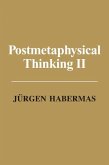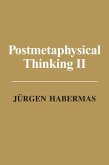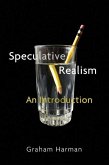Two countervailing trends mark the intellectual tenor of our age the spread of naturalistic worldviews and religious orthodoxies. Advances in biogenetics, brain research, and robotics are clearing the way for the penetration of an objective scientific self-understanding of persons into everyday life. For philosophy, this trend is associated with the challenge of scientific naturalism. At the same time, we are witnessing an unexpected revitalization of religious traditions and the politicization of religious communities across the world. From a philosophical perspective, this revival of religious energies poses the challenge of a fundamentalist critique of the principles underlying the modern Wests postmetaphysical understanding of itself.
The tension between naturalism and religion is the central theme of this major new book by Jrgen Habermas. On the one hand he argues for an appropriate naturalistic understanding of cultural evolution that does justice to the normative character of the human mind. On the other hand, he calls for an appropriate interpretation of the secularizing effects of a process of social and cultural rationalization increasingly denounced by the champions of religious orthodoxies as a historical development peculiar to the West. These reflections on the enduring importance of religion and the limits of secularism under conditions of postmetaphysical reason set the scene for an extended treatment the political significance of religious tolerance and for a fresh contribution to current debates on cosmopolitanism and a constitution for international society.
Hinweis: Dieser Artikel kann nur an eine deutsche Lieferadresse ausgeliefert werden.
The tension between naturalism and religion is the central theme of this major new book by Jrgen Habermas. On the one hand he argues for an appropriate naturalistic understanding of cultural evolution that does justice to the normative character of the human mind. On the other hand, he calls for an appropriate interpretation of the secularizing effects of a process of social and cultural rationalization increasingly denounced by the champions of religious orthodoxies as a historical development peculiar to the West. These reflections on the enduring importance of religion and the limits of secularism under conditions of postmetaphysical reason set the scene for an extended treatment the political significance of religious tolerance and for a fresh contribution to current debates on cosmopolitanism and a constitution for international society.
Hinweis: Dieser Artikel kann nur an eine deutsche Lieferadresse ausgeliefert werden.
"[T]here is a rich material for reflection in these essays for those interested in a variety of topics, ranging from philosophy of mind, questions of determinism and free will, the history of modern philosophy, and problems of truth and meaning to the nature of democracy and the possibilities of a new world order. Habermas manages to integrate his discussion of these diverse problems in a way which is regrettably not common in English-speaking philosophy, and for this reason above all this is a book which is well worth reading."
Philosophy
"The volume will be of interest to all students of social, moral and political philosophy as well as philosophy of religion and philosophy of science."
Marx and Philosophy
"A major study by a prominent German philosopher reflecting ont he tenstion between the spread of naturalistic worldviews and the revival of religious orthodoxies and their political influence ... the arguments elucidated are significant for our time."
The Scientific and Medical Network
Philosophy
"The volume will be of interest to all students of social, moral and political philosophy as well as philosophy of religion and philosophy of science."
Marx and Philosophy
"A major study by a prominent German philosopher reflecting ont he tenstion between the spread of naturalistic worldviews and the revival of religious orthodoxies and their political influence ... the arguments elucidated are significant for our time."
The Scientific and Medical Network
"A remarkable set of essays. The reader is again awed by the scope of Habermas' project, the wealth of his command over European and Anglo-American scholarship, and the systematic integrity of his conclusions."
International Journal for Philosophy of Religion
"[T]here is a rich material for reflection in these essays for those interested in a variety of topics, ranging from philosophy of mind, questions of determinism and free will, the history of modern philosophy, and problems of truth and meaning to the nature of democracy and the possibilities of a new world order. Habermas manages to integrate his discussion of these diverse problems in a way which is regrettably not common in English-speaking philosophy, and for this reason above all this is a book which is well worth reading."
Philosophy
"The volume will be of interest to all students of social, moral and political philosophy as well as philosophy of religion and philosophy of science."
Marx and Philosophy
"A major study by a prominent German philosopher reflecting on the tension between the spread of naturalistic worldviews and the revival of religious orthodoxies and their political influence ... the arguments elucidated are significant for our time."
Scientific and Medical Network
International Journal for Philosophy of Religion
"[T]here is a rich material for reflection in these essays for those interested in a variety of topics, ranging from philosophy of mind, questions of determinism and free will, the history of modern philosophy, and problems of truth and meaning to the nature of democracy and the possibilities of a new world order. Habermas manages to integrate his discussion of these diverse problems in a way which is regrettably not common in English-speaking philosophy, and for this reason above all this is a book which is well worth reading."
Philosophy
"The volume will be of interest to all students of social, moral and political philosophy as well as philosophy of religion and philosophy of science."
Marx and Philosophy
"A major study by a prominent German philosopher reflecting on the tension between the spread of naturalistic worldviews and the revival of religious orthodoxies and their political influence ... the arguments elucidated are significant for our time."
Scientific and Medical Network








